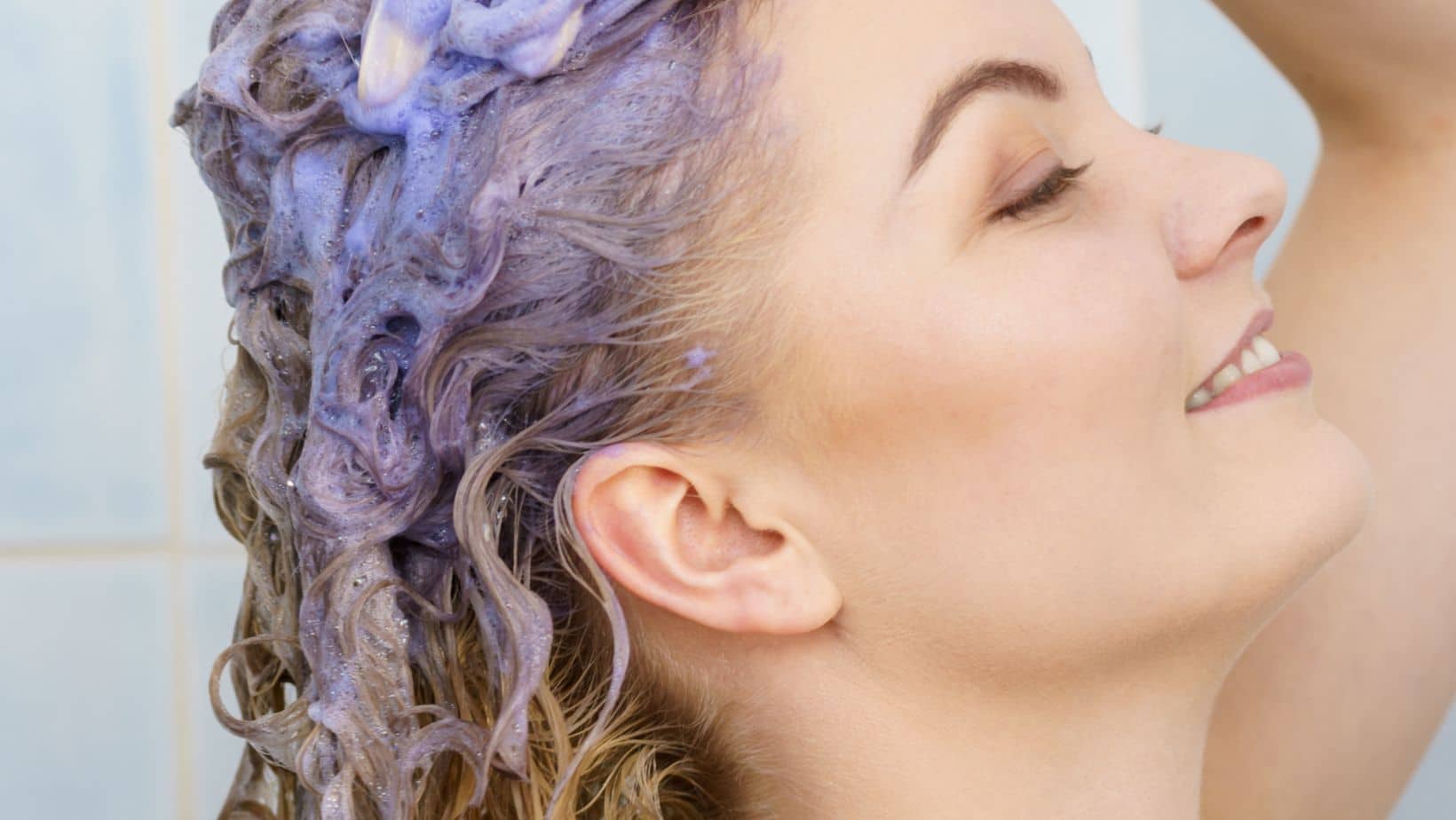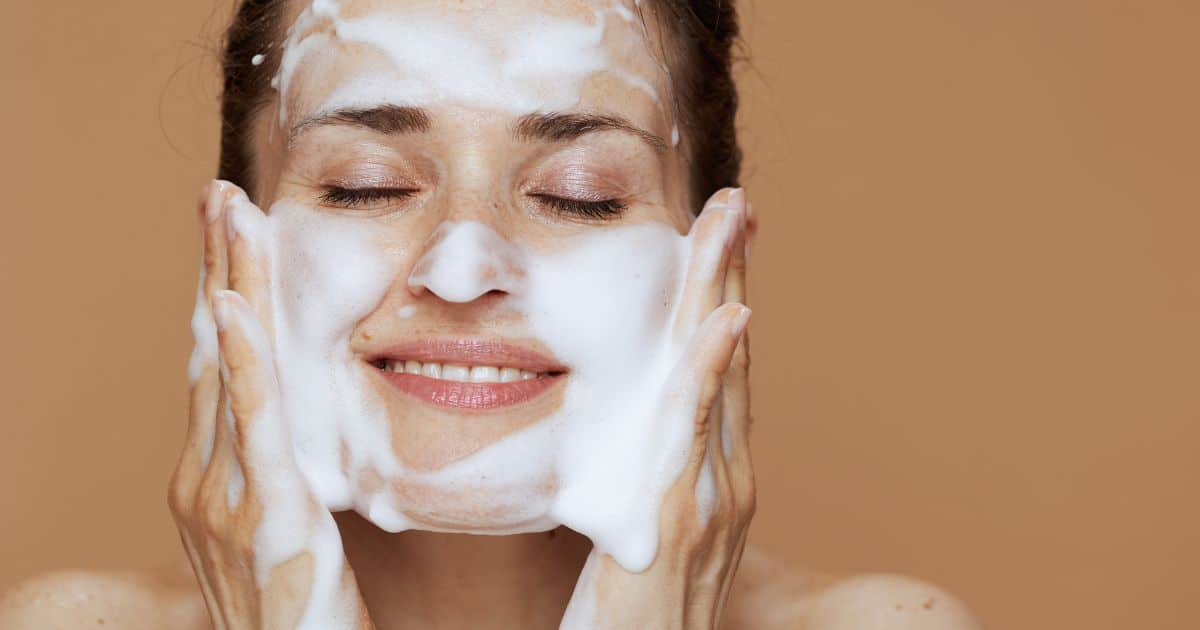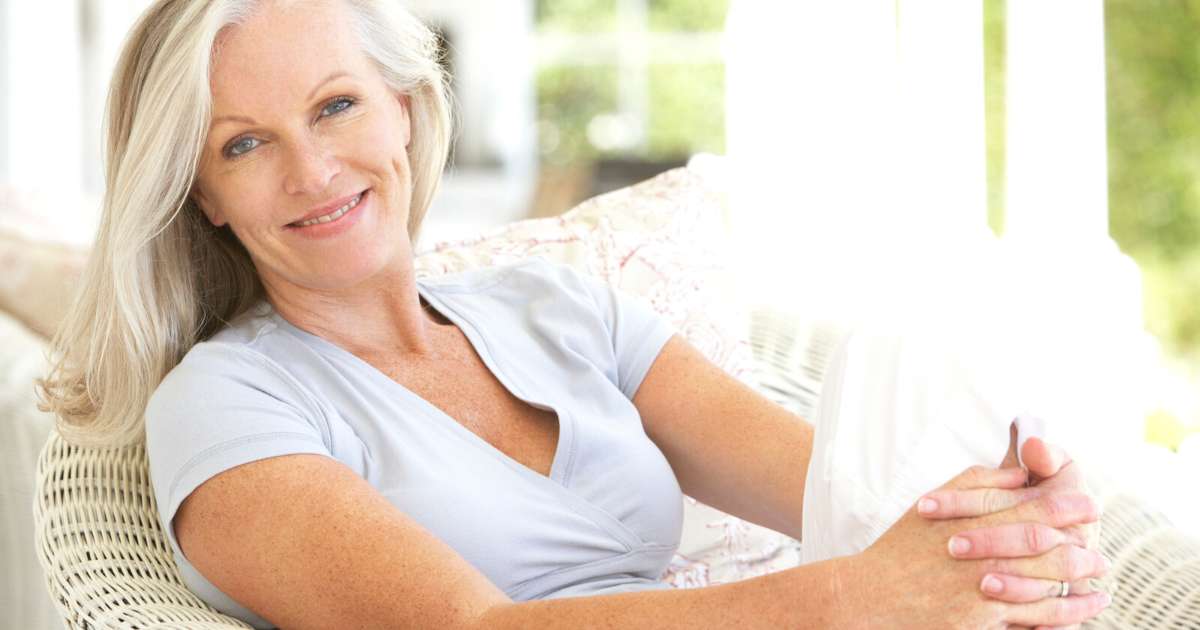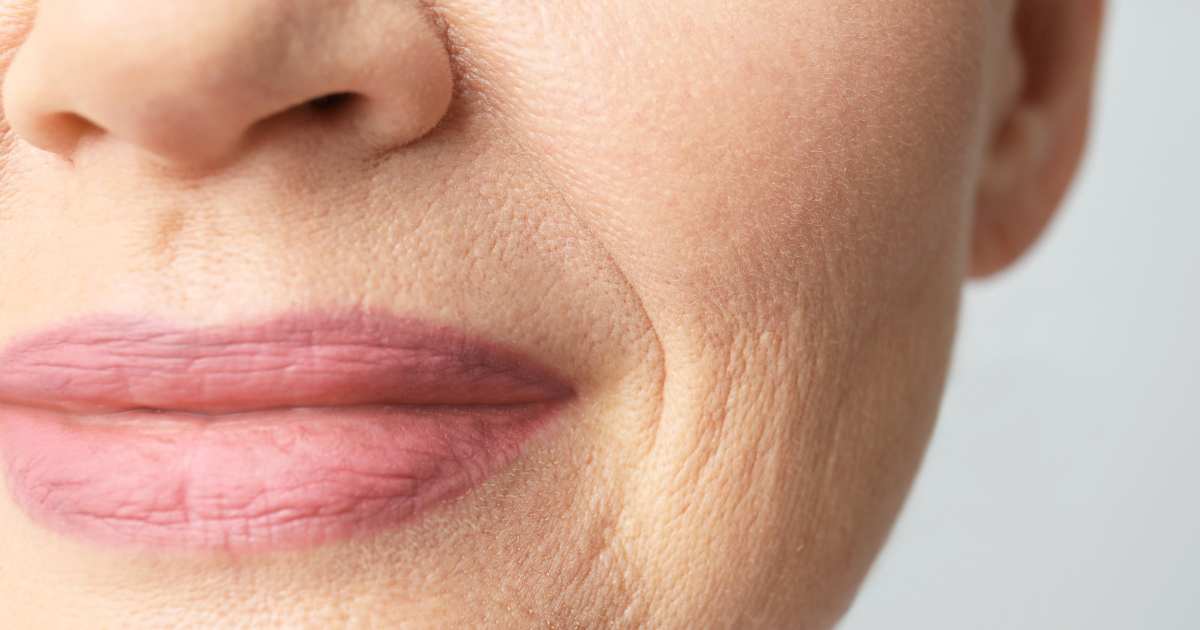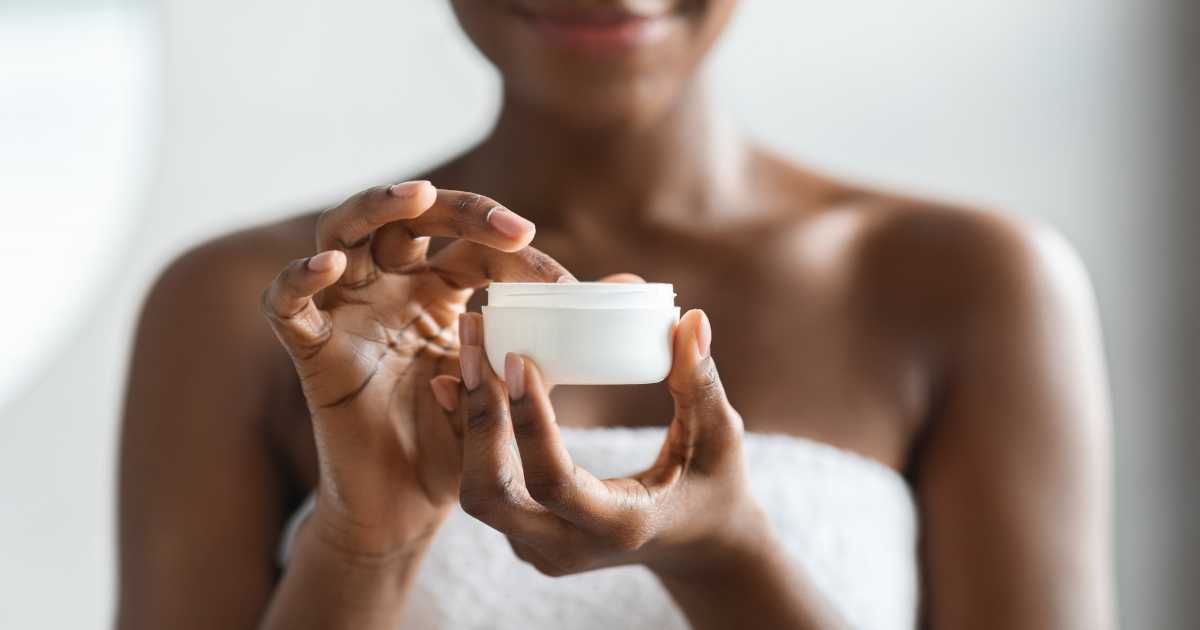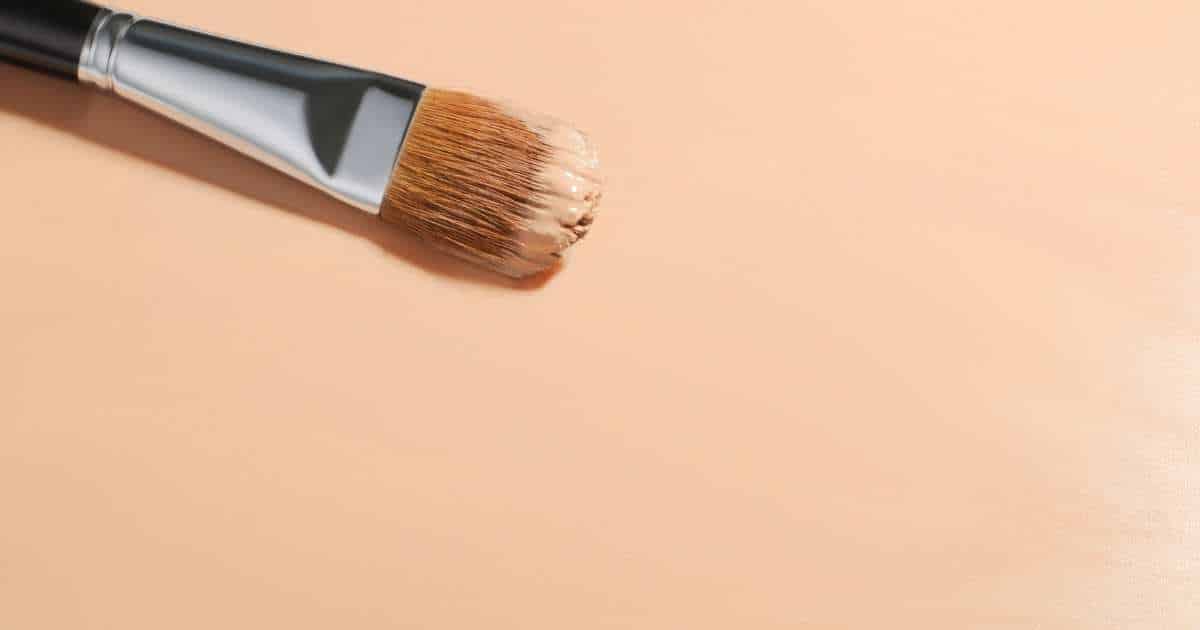Aging Gracefully? Here are 15 Healthy Aging Tips for 2025
In this article I will explore healthy aging tips and tricks to help you age gracefully and maintain a healthy and happy life.
Aging gracefully is something that many of us aspire to, but it can be difficult to know where to start. As we age, our bodies and minds undergo changes that can impact our health and well-being.
Growing old is not for wimps!
Thankfully, there is good news! There are lots of things that we can do to age well.
By adopting healthy lifestyle choices, stress management techniques, and even indulging in a few pro-aging treatments here and there, we can live long and vital lives, aging gracefully from the inside out.
Are you with me? Let’s get started!
This post may contain affiliate links. Click to visit policies and disclosures

What Does Aging Gracefully Mean?
To age gracefully means to embrace the natural aging process and the natural changes that come with age with a positive attitude,
accepting the changes that come with time while caring for our physical, mental, and emotional well-being.
It’s about maintaining a healthy lifestyle, staying active, nurturing relationships, and cultivating a strong sense of self as you grow older.
Aging gracefully isn’t about trying to stop or reverse the aging process but rather about making the most of every stage of life and celebrating the wisdom, experience, and personal growth that come with the passing years.
It’s about living the best life possible.
Like a bottle of good wine, aged cheese, or a beautiful old oak tree, we, too, can strive to grow better with age.
How to Age Gracefully: 15 Healthy Aging Tips
Healthy aging is maintaining optimal physical, mental, and emotional well-being as you age.
It involves making conscious choices and adopting lifestyle habits that promote overall health, prevent age-related diseases, and enhance quality of life in later life.
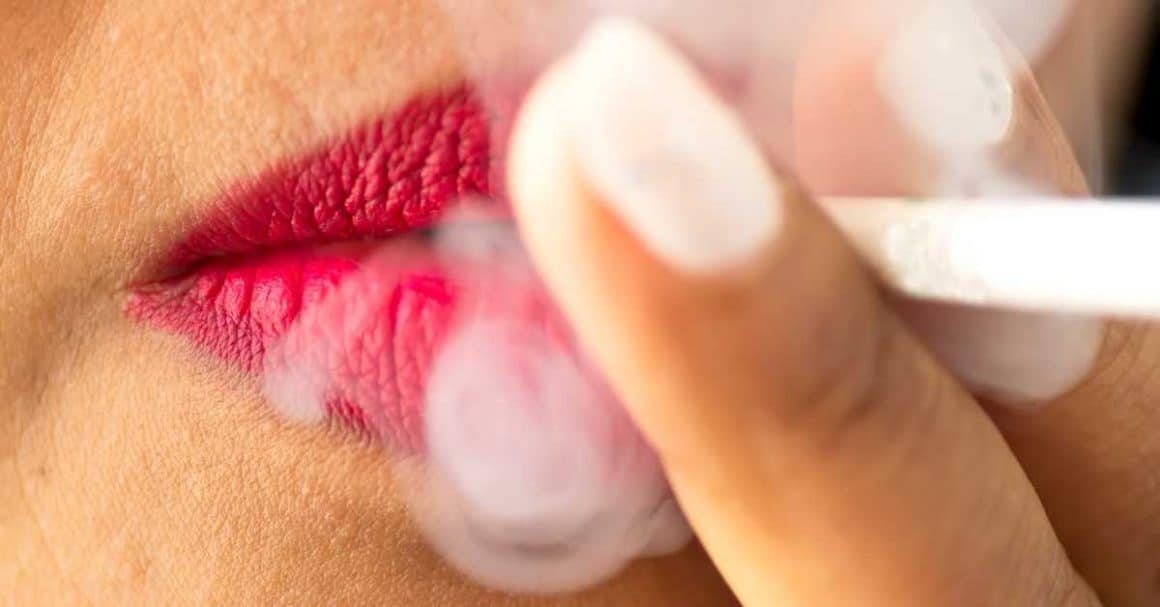
1. DON’T SMOKE.
Avoiding smoking is critical to maintaining a healthy lifestyle as we age.
Smoking has numerous detrimental effects on your health, including an increased risk of heart disease, stroke, and various types of cancer. It can also negatively impact your lung function, skin health, and life expectancy.
By choosing not to smoke or quitting if you currently do, you can significantly reduce your risk of developing a wide range of health problems and increase your life expectancy.
Smoking increases the risk of numerous diseases due to the harmful chemicals present in tobacco smoke. These chemicals can damage your body’s cells, tissues, and organs, leading to various health issues.
Smoking increases the risk of disease, causes premature aging, and shortens life expectancy:
Cancers: Smoking increases the risk factor for several types of cancers, such as lung, mouth, throat, esophagus, pancreas, bladder, kidney, cervix, and stomach. The harmful chemicals in tobacco smoke can damage DNA and other genetic material in your cells, forming cancerous cells.
Cardiovascular disease: Smoking damages your blood vessels and heart, increasing the risk of heart disease, heart attacks, and stroke. It can cause plaque buildup in the arteries, restricting blood flow and leading to cardiovascular complications.
Chronic obstructive pulmonary disease (COPD): Smoking harms your lung tissues and airways, leading to chronic bronchitis and emphysema, which fall under COPD. This disease can cause severe breathing difficulties and decrease your quality of life.
- Respiratory infections: Smokers are more prone to respiratory diseases, such as pneumonia and bronchitis, as smoking weakens your immune system and damages your respiratory system.
- Type 2 diabetes: Smoking is linked to a higher risk of developing type 2 diabetes, as it can impair your body’s ability to use insulin effectively, leading to elevated blood sugar levels.
Smoking also contributes to premature skin aging.
Tobacco smoke contains chemicals that can break down collagen and elastin, the proteins responsible for maintaining skin tone and firmness.
Smoking leads to these signs of aging:
- Wrinkles and fine lines appear earlier than they would in non-smokers.
- A dull, grayish complexion due to reduced blood flow to the skin.
- An increased risk of skin damage from the sun, as smoking can weaken your skin’s ability to protect itself from UV rays.
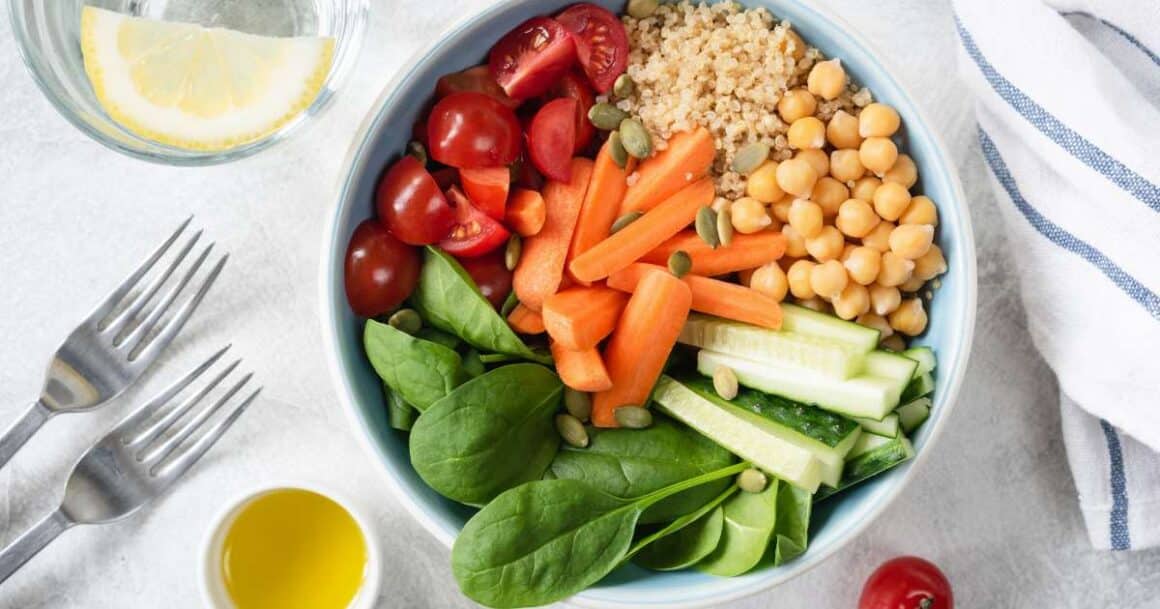
2. Eat a Balanced Diet
A well-balanced diet plays an important role in aging gracefully.
Incorporate plenty of healthy foods, such as fresh fruits and vegetables, including leafy greens, whole grains, lean protein, and healthy fats, into your daily meals.
Limit processed foods and excessive sugar intake to keep your body functioning optimally
Eating healthy foods in your golden years gives your body the fuel to function at its best while helping reduce the risk of chronic diseases such as heart disease and type 2 diabetes.
Additionally, making healthy eating choices can help you maintain a healthy weight by reducing the calories you consume each day.
Look at these dietary guidelines for older people over the age of 50:
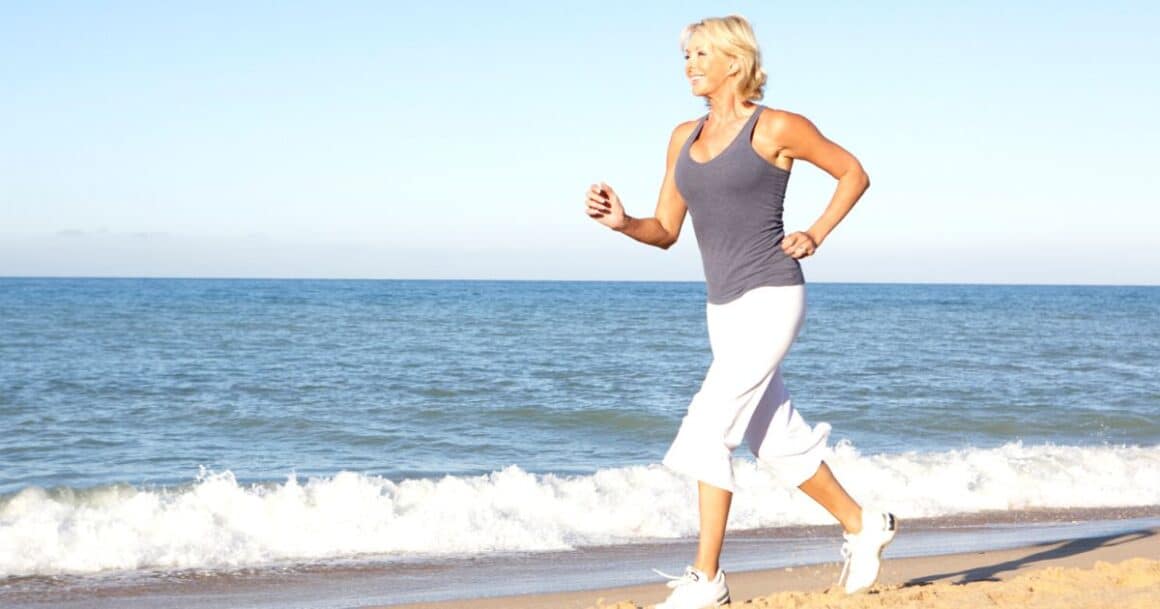
3. Get Regular Exercise
Staying physically active is essential for maintaining overall physical health, including muscle mass, flexibility, and cardiovascular health.
Aim for at least 30 minutes of moderate exercise most days of the week, incorporating aerobic activities (like walking or swimming) and strength training practices.
Remember, it’s never too late to start exercising, so find an activity you enjoy and get moving!
Exercise is crucial in helping you age gracefully by providing numerous physical, mental, and emotional benefits.
Here are some health benefits of incorporating regular exercise as we age:
Improved cardiovascular health: Exercise helps strengthen your heart, improve circulation, and reduce the risk of heart disease and stroke.
Increased muscle strength: Engaging in strength training exercises helps maintain and even increase muscle mass, which naturally declines as you age.
Better bone density: Weight-bearing exercises, such as walking, running, or resistance training, can help maintain or improve bone health, reducing the risk of osteoporosis and fractures.
Enhanced balance and flexibility: Exercise routines that focus on balance and flexibility, such as yoga or tai chi, can help improve your overall stability, reducing the risk of falls and injuries.
Weight management: Regular physical activity helps you maintain a healthy weight, preventing obesity-related health issues like type 2 diabetes and heart disease.
Improved mental health: Exercise has been shown to reduce stress, anxiety, and depression by releasing feel-good endorphins and promoting relaxation.
Better cognitive function: Regular physical activity has been linked to improved memory, attention, and overall cognitive function, which can help prevent age-related cognitive decline.
Increased energy levels: Exercise can help boost your energy levels and reduce feelings of fatigue, enabling you to stay more active and engaged in daily life.
Better sleep: Regular exercise can help improve your sleep quality by promoting relaxation and regulating your sleep-wake cycle. *more on getting enough sleep below)
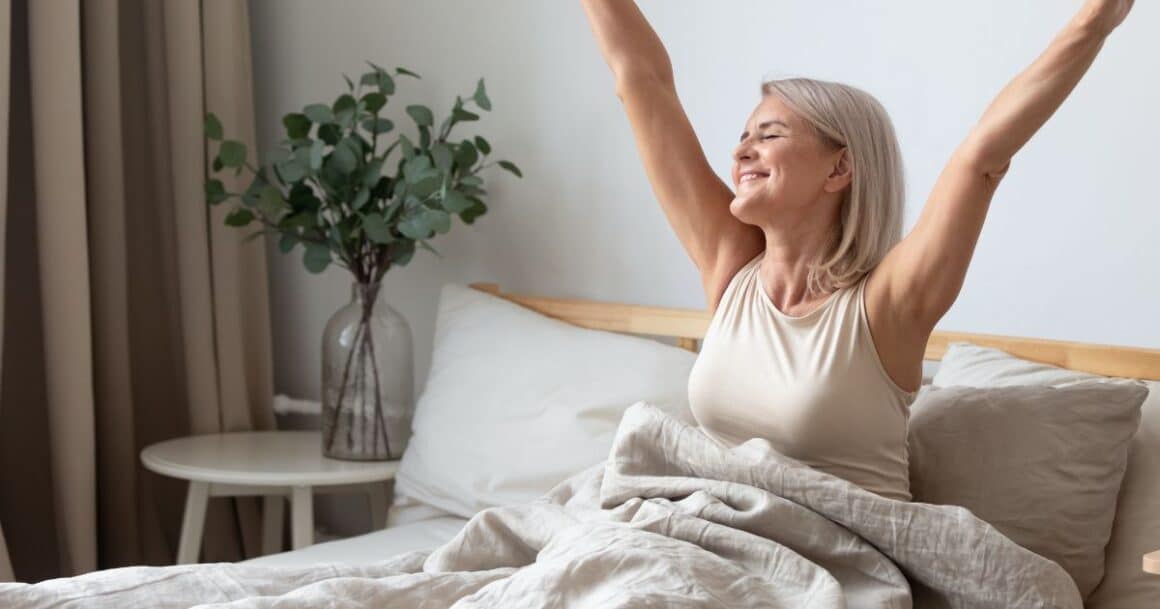
4. Get Your Beauty Sleep!
Practicing good sleep hygiene is essential for aging gracefully.
Our sleep patterns tend to change as we age, with many older adults experiencing more fragmented sleep and waking up more frequently throughout the night.
This can lead to daytime fatigue, mood changes, and other negative health outcomes.
Good sleep hygiene practices, such as maintaining a consistent sleep schedule, avoiding caffeine and alcohol close to bedtime, and creating a relaxing sleep environment, can help older adults get better quality sleep and feel refreshed during the day.
Poor sleep can also impact the appearance of our skin, making it look dull and tired.
By prioritizing good sleep hygiene practices, older adults can promote a youthful appearance and maintain optimal health and well-being as they age gracefully.
Here’s why older adults should prioritize sleep:
The Importance of Sleep for Older Adults
Physical health
Adequate sleep allows the body to repair and regenerate cells, tissues, and organs, supporting overall physical health.
Sleep also affects hormones that control appetite and metabolism, helping maintain a healthy weight.
Mental health
Sleep is essential for emotional well-being, as it helps regulate mood and reduce the risk of anxiety and depression.
Good sleep can contribute to better stress management and emotional resilience.
Cognitive function
Quality sleep is crucial in consolidating memories and maintaining cognitive function.
Quality sleep improves focus, attention, and problem-solving skills, which are all vital for aging gracefully.
Immune system
Sleep is necessary for a strong immune system, as it supports the production of infection-fighting cells and antibodies. Getting enough sleep can reduce the risk of illnesses and help you recover more quickly when you do get sick.
Resources for Better Sleep
If you’re an older adult struggling with sleep, resources are available to help you improve your sleep habits.
National Sleep Foundation
The National Sleep Foundation offers information and tips on improving sleep quality and quantity for people of all ages, including older adults.
American Academy of Sleep Medicine
The American Academy of Sleep Medicine provides resources and guidelines for diagnosing and treating sleep disorders and information on maintaining healthy sleep habits.
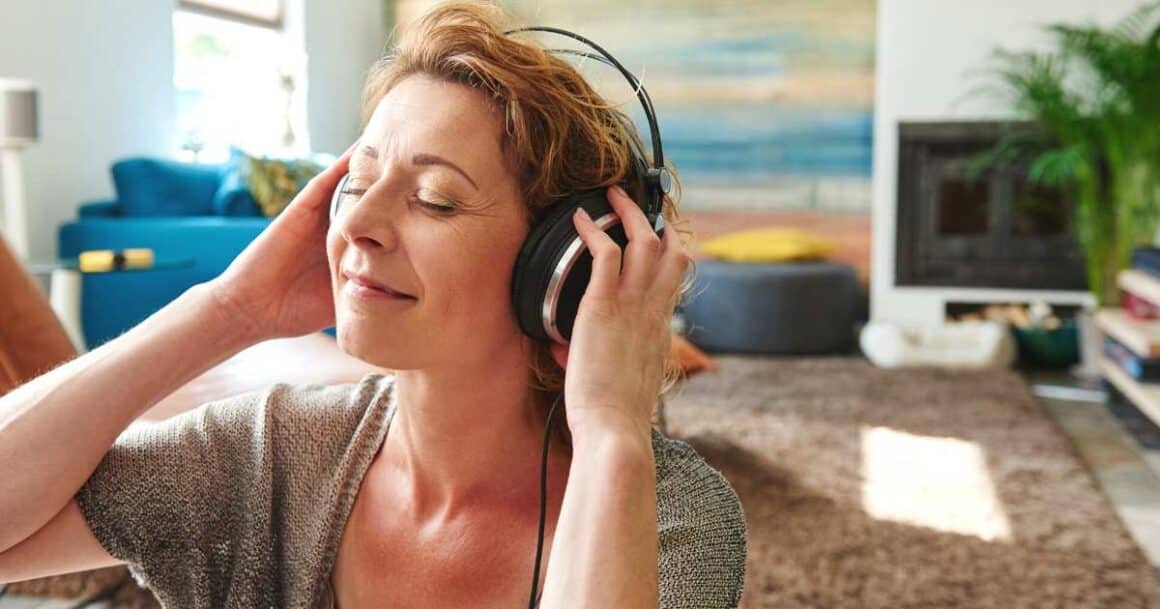
5. Make Mental Health a Priority
Taking care of your mental health is just as important as maintaining your physical health.
Make time for relaxation, stress management, and hobbies that bring you joy. Regular meditation or mindfulness practices can help you stay centered and maintain a positive outlook as your body ages.
Maintaining mental wellness is crucial for a balanced, healthy life, and it becomes even more critical in older adults.
Here are some ideas to help you maintain mental health:
Practice mindfulness
Incorporate mindfulness techniques like meditation, deep breathing, or yoga into your daily routine to help reduce stress and increase self-awareness.
Stay socially connected
Nurture your relationships with friends and family to ward off loneliness and promote a sense of belonging.
Exercise regularly
Physical activity not only benefits your body but also has a positive impact on your mental health by releasing endorphins and reducing stress.
Get enough sleep
Prioritize good sleep hygiene to ensure you’re well-rested, as sleep plays a significant role in mental well-being.
Eat a balanced diet
Consuming a nutrient-rich diet can help support brain function and stabilize your mood.
Limit alcohol and avoid drugs
Reduce your alcohol consumption and avoid recreational drugs, as they can negatively affect mental health over time.
Manage stress
Stress is a killer. Identify your stressors and develop healthy coping mechanisms, such as journaling, practicing relaxation techniques, or seeking support from friends and professionals.
Engage in hobbies
Participate in activities you enjoy to bring joy and relaxation to your life, whether painting, gardening, or playing a musical instrument.
Learn something new
Learn new skills, take up new hobbies, or pursue further education to keep your mind sharp and engaged.
Practice gratitude
Cultivate a habit of gratitude by regularly reflecting on and expressing appreciation for the positive aspects of your life.
Seek professional help when needed
If you’re struggling with mental health issues, don’t hesitate to consult a mental health professional, such as a therapist or counselor, for guidance and support.
Brain-Boosting Activities
Keeping your mind sharp is vital for maintaining mental agility as you age. Engage in activities challenging your brain, such as crossword puzzles, Sudoku, or learning a new language.
These activities can help improve cognitive function and reduce the risk of age-related cognitive decline.
Related Article: Self-care Plan for Mental Health
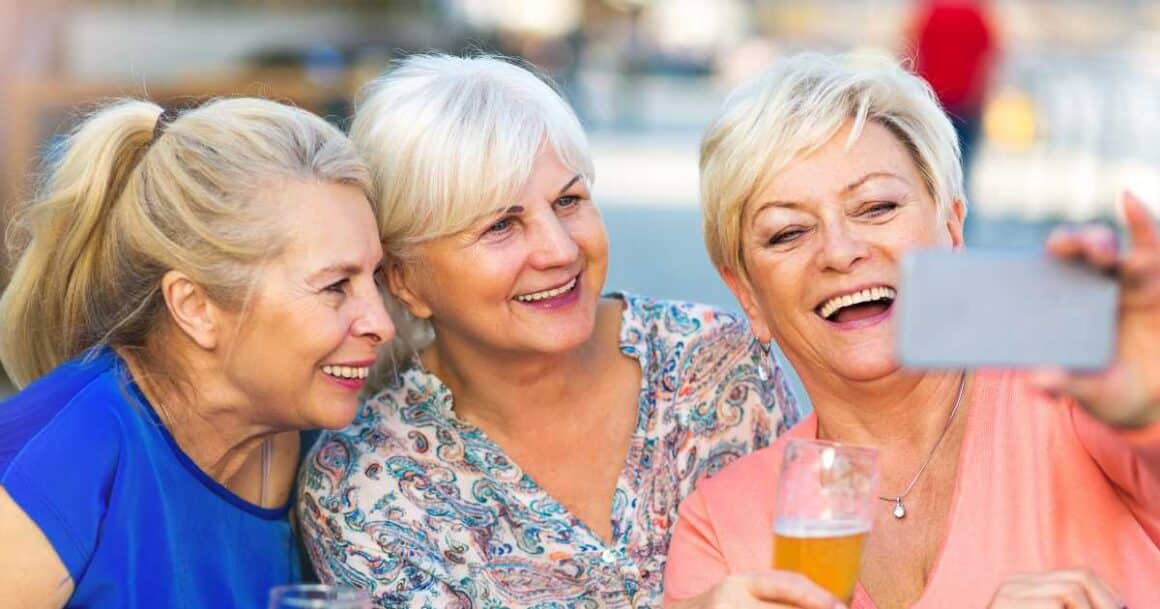
6. Be Social
Staying connected with friends, family, and your community can help ward off feelings of loneliness and isolation as you age
. Prioritize social activities, join clubs or groups, and try to meet new people to maintain a strong social network.
Spending time with friends, family, and even strangers can strengthen emotional health and give us a sense of purpose in life.
Benefits of a Healthy Social Lifestyle:
Improved mental health
A solid social support network can help reduce feelings of loneliness, depression, and anxiety, promoting better mental health.
Reduced stress
Socializing with friends and loved ones can help lower stress levels and provide an outlet for sharing concerns or challenges.
Increased sense of belonging
Being part of a community or group can give you a sense of purpose and belonging, which is vital for overall happiness.
Cognitive benefits
Engaging in social activities can help keep your mind sharp and may reduce the risk of age-related cognitive decline and dementia.
Improved physical health
Social connections have been linked to better physical health, including a stronger immune system and a reduced risk of chronic diseases.
Longevity
People with strong social connections tend to live longer, healthier lives than more isolated ones.
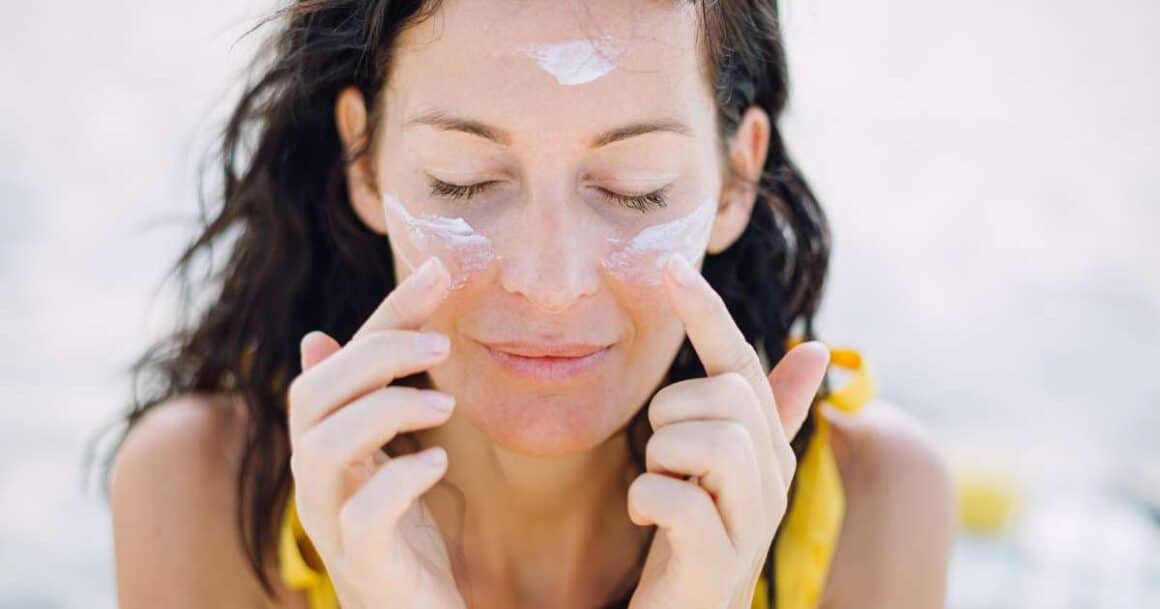
7. Protect Yourself
Want to know the most important thing you can do to age gracefully (in the physical sense?)? Wear sunscreen.
Protecting your skin from harmful UV rays is essential for keeping it looking youthful and preventing skin cancer.
Always wear broad-spectrum sunscreen with an SPF of 30 or higher, and avoid excessive sun exposure, especially during peak hours.
Protecting yourself from the sun’s harmful rays is essential for maintaining healthy skin and reducing the risk of skin cancer. Here’s a list of ways to shield yourself from the sun’s damaging effects:
Wear sunscreen: Apply a broad-spectrum sunscreen with an SPF of at least 30 to all exposed skin, even on cloudy days. Reapply every two hours and after swimming or sweating.
Seek shade: When outdoors, try to stay in the shade, especially during peak sun hours (usually between 10 a.m. and 4 p.m.).
Wear protective clothing: Dress in long-sleeved shirts, long pants, and wide-brimmed hats to cover as much skin as possible. Opt for clothing with built-in sun protection if available.
Wear sunglasses: Protect your eyes by wearing sunglasses that block 100% of UVA and UVB rays. This can help prevent cataracts and other eye issues caused by sun exposure.
Avoid tanning beds: Tanning beds emit harmful UV radiation that can damage your skin and increase the risk of skin cancer. Opt for self-tanning products or spray tans instead.
Check the UV index: Pay attention to the UV index in your area, which measures the strength of the sun’s rays. Plan your outdoor activities accordingly, and take extra precautions when the UV index is high.
Use sun-protective accessories: Carry a sun umbrella or invest in a portable shade canopy for outdoor events to help shield yourself from direct sunlight.
Apply lip balm with SPF: Protect your lips by using a lip balm with added sun protection.
Be mindful of water, snow, and sand: These surfaces can reflect the sun’s rays, increasing your exposure to harmful UV radiation. Take extra precautions in these environments.

8. Stay Hydrated
Drinking enough water is crucial for maintaining healthy, supple skin. Aim for at least eight glasses of water daily to keep your skin hydrated and glowing.
Proper hydration is essential for aging gracefully, as it plays a crucial role in maintaining overall health and well-being.
Why staying well-hydrated is essential as we age:
Skin health
Adequate hydration helps maintain skin tone and suppleness, reducing the appearance of wrinkles and fine lines. Dehydrated skin may appear dull, dry, and more prone to aging.
Digestion
Drinking sufficient water aids digestion, prevents constipation, and promotes a healthy gut. A well-functioning digestive system is essential for nutrient absorption and overall health.
Joint health
It’s no secret that our joints start to ache with old age. Proper hydration helps lubricate and cushion our joints, reducing the risk of joint pain and inflammation.
Staying hydrated can be especially beneficial for individuals with arthritis or other joint-related conditions.
Energy levels
Dehydration can lead to fatigue and a lack of energy. Staying well-hydrated helps maintain energy levels, keeping you active and engaged throughout the day.
Cognitive function
Adequate hydration is essential for optimal brain function. Dehydration can impair concentration, memory, and mood, making it more challenging to stay mentally sharp as we age.
Kidney health
Drinking enough water helps flush toxins from our kidneys, reducing the risk of kidney stones and promoting overall kidney health.
Our kidneys may become less efficient as we age, making hydration even more important.
Weight management
Staying well-hydrated can help control appetite and support healthy weight management, as thirst is often mistaken for hunger.
A healthy weight can improve overall health and vitality as we age.
Related Article: The Beauty Benefits of Drinking Water
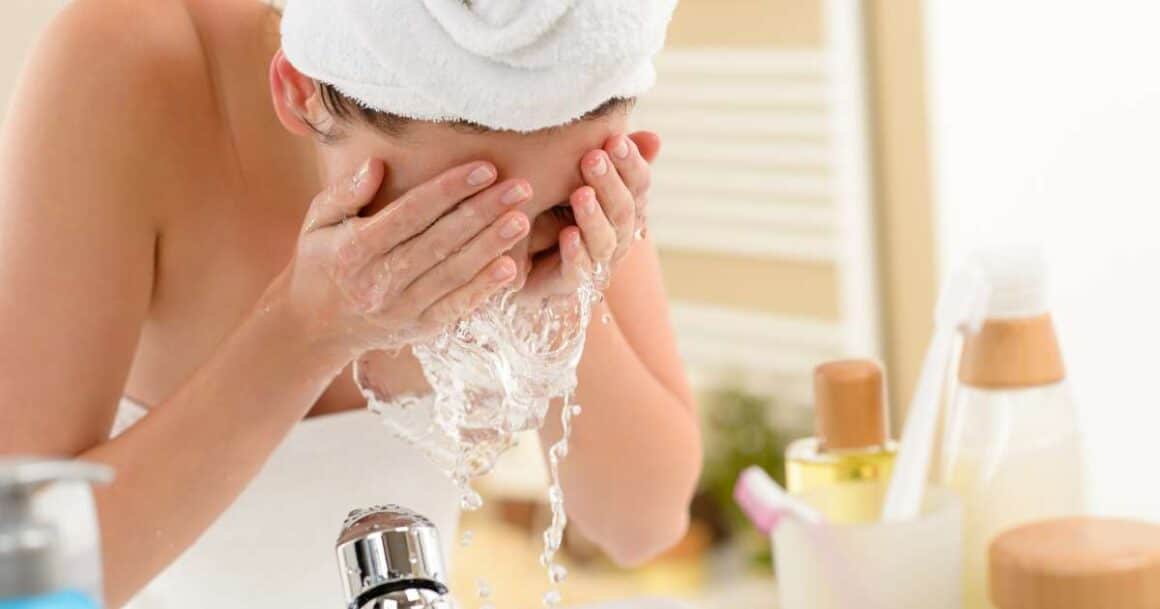
9. Have a Solid Pro-Aging Skincare Routine
Develop a skincare routine tailored to your skin type and concerns. A good skincare routine is vital for maintaining healthy, youthful skin as we age.
Essential steps to a good skincare routine:
Cleansing
Gently cleanse your skin twice a day using a mild, non-stripping cleanser that preserves your skin’s natural oils.
This simple step helps remove dirt, makeup, and environmental pollutants—key culprits that can accelerate aging.
Related article: The Best Double Cleansing Routine
Exfoliation
Exfoliate your skin 1-2 times a week using a gentle exfoliating product. This will help eliminate dead skin cells, promote cell turnover, and maintain your skin’s fresh and radiant appearance.
Related article: The Best Exfoliators for Mature Skin
Toning
Use a gentle, alcohol-free toner to rebalance your skin’s pH and prep it for the next steps in your skincare routine. This helps your skin absorb serums and moisturizers more effectively.
Serums
Apply a targeted serum that addresses your specific skin concerns, such as fine lines, wrinkles, or age spots. Look for powerhouse ingredients like retinol, vitamin C, or hyaluronic acid to support aging skin and boost radiance.
Moisturizing
As we age, skin tends to become drier.
Keep your skin deeply hydrated with a moisturizer suited to your skin type. Choose formulas with hyaluronic acid, ceramides, or peptides to lock in moisture, improve skin tone, and defend against free radicals.
Sun Protection
Apply a broad-spectrum sunscreen with an SPF of at least 30 every day—even when it’s cloudy. Daily sun protection is essential for preventing premature aging and reducing the risk of skin cancer.
Eye Care
The delicate skin around your eyes needs special attention. Use a dedicated eye cream or gel with ingredients like peptides, retinol, or caffeine to help reduce the appearance of fine lines, puffiness, and dark circles.
Neck and Décolleté Care
Remember your neck and décolleté—these areas often show early signs of aging. Extend your skincare routine to include them by applying facial products or using products specifically formulated for these sensitive zones.
Nighttime Skincare
At night, your skin shifts into repair mode. Use a richer, more nourishing night cream or treatment with ingredients like retinol, peptides, or antioxidants to support overnight regeneration and target visible signs of aging.
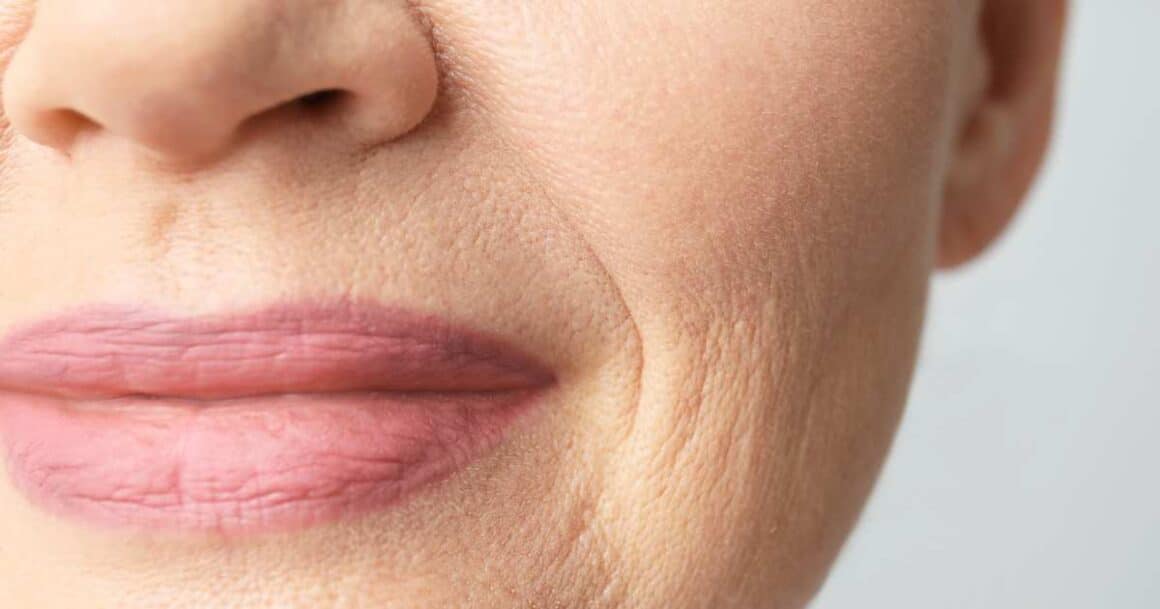
The Holy Grail of Anti-aging: Retinol or Retin-A (tretinoin)
Ask any beauty guru, “What’s the best beauty product for women over 50?” They will all say Tretinoin!
The Many Benfits of Tretinoin:
Collagen stimulation
Retinol and Retin-A help stimulate the production of collagen, which is essential for maintaining skin firmness and elasticity.
Cell turnover
Retin-a or Tretinoin promotes faster skin cell turnover, helping to reveal fresher, more youthful skin.
They can also help even your skin tone and texture, making your complexion appear smoother and more radiant.
Pore size reduction
Retin-A can help unclog pores and minimize their appearance, leading to clearer, more refined-looking skin.
Acne treatment
Retinols and Retin-A is very effective in treating acne by unclogging pores and reducing inflammation.
Sun damage repair
These ingredients can help reverse some of the damage caused by sun exposure, including reducing the appearance of age spots and hyperpigmentation.
Related article: How to use Tretinoin Cream with Moisturizer
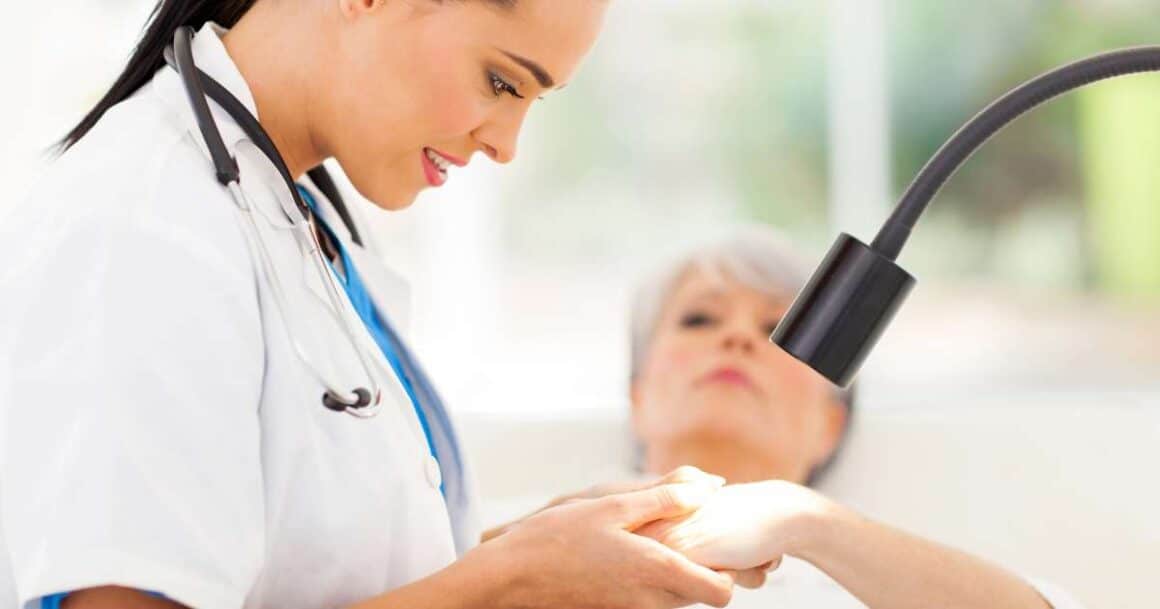
10. Get Regular Check-ups
Regular check-ups with healthcare professionals, such as your general practitioner, dermatologist, and other specialists, are crucial for gracefully maintaining good health and aging.
Here are some benefits of getting routine check-ups:
Early detection of health issues
Regular visits to your healthcare providers can help identify potential health problems early, increasing the chances of effective treatment and management.
Preventive care
Routine check-ups often include screenings and vaccinations that can help prevent diseases and maintain your overall health.
Management of Chronic illnesses
If you’re living with a chronic condition, regular appointments with your healthcare providers can help you manage your symptoms and ensure you receive the most effective treatments.
Medication management
Regular check-ups allow your healthcare providers to monitor the effectiveness of your medications and make necessary adjustments.
Lifestyle recommendations
Your healthcare providers can offer tailored advice on nutrition, exercise, and other lifestyle factors that can improve your overall health and well-being.
Mental health support
Routine visits to your healthcare providers can also help monitor and address any mental health concerns, such as stress, anxiety, or depression.
Here’s a list of diagnostic tests and screenings that may be included in your routine check-ups:
- Blood pressure screening
- Cholesterol screening
- Diabetes screening
- Colorectal cancer screening
- Prostate cancer screening (for men)
- Mammography (for women)
- Pap test and HPV test (for women)
- Bone density screening (for women)
- Skin cancer screening (by a dermatologist)
- Eye exams (by an optometrist or ophthalmologist)
- Dental exams and cleanings (by a dentist)
- Hearing tests (by an audiologist)
- Immunizations and vaccination
11. Get Hormones in Balance
As you age, hormone levels naturally fluctuate, impacting your overall well-being. Speak with your doctor about hormone replacement therapy or other treatments to help balance your hormones and maintain optimal health.
As we age, our hormones can become imbalanced, leading to symptoms such as fatigue, weight gain, and mood changes.
Hormone therapy can be a helpful tool for aging gracefully by restoring hormone balance and alleviating symptoms.
Here are some things to know about hormone therapy:
Types of Hormone Therapy
Hormone therapy can involve synthetic or bioidentical hormones, which are chemically identical to the hormones naturally produced by the body.
Many people prefer bioidentical hormone therapy for its more natural approach, though both types can be effective depending on individual needs and medical guidance.
Benefits of Hormone Therapy
Hormone therapy may help relieve a variety of symptoms related to hormonal imbalances, such as hot flashes, night sweats, mood swings, and vaginal dryness.
It can also support bone health by improving bone density and reducing the risk of osteoporosis.
Risks of Hormone Therapy
Like any medical treatment, hormone therapy carries potential risks. These may include an increased risk of blood clots, stroke, and breast cancer.
It’s essential to carefully weigh the benefits and risks in consultation with a qualified healthcare provider.
Partnering with a Healthcare Provider
A healthcare professional should always supervise hormone therapy. Regular testing of hormone levels is important to ensure proper dosing and to monitor for side effects or possible interactions with other medications.
Related article: Bioidentical Hormone Replacement: My Story
12. Say No to Stress
Managing stress is essential for maintaining both physical and mental well-being.
Stress can be incredibly harmful to our health if left unchecked. It can weaken our immune system and contribute to heart disease, high blood pressure, and mental health issues like anxiety and depression.
The best way to combat stress is to engage in healthy self-care practices, such as meditation, gratitude, and maintaining healthy interests and hobbies that bring joy and relaxation.
Incorporating these de-stressing techniques into your daily routine, you’ll be better equipped to handle life’s challenges and maintain a healthier, happier life.
there are plenty of ways to relieve stress. Here are just a few ideas.
- Meditation: Meditation is a proven method to help relieve stress. source
- Deep breathing exercises: When we are stressed, we tend to forget to breathe.
- Physical activity: Exercise releases endorphins, which help improve mood and alleviate stress.
- Engaging in hobbies: Need a new hobby? Click here.
- Journaling: Freeing your cluttered mind can go a long way to relieving stress.
- Digital Detox: Detox from social media and the news. Trust me.
- Getting enough sleep: Get the recommended amount of sleep (7-9 hours) every night. Poor sleep leads to poor health and stress!
- Get Outside: Spending time in nature, vitamin D and fresh is always a win.
- Listening to music: Choose soothing music to help you relax or upbeat tunes to boost your mood and energy levels.
- Aromatherapy: Essential oils, such as lavender or chamomile, can create a calming atmosphere and help you de-stress.
- Taking a warm bath or shower: Enjoying a warm bath or shower can help soothe tense muscles and provide a relaxing, stress-relieving experience.
- Setting boundaries: Learn to say no and establish healthy boundaries with others and yourself.
Related article: How to Make a Stress Management Plan
13. Take Supplements for Women Over 50
Calcium and Vitamin D
These nutrients are essential for maintaining bone health and preventing osteoporosis.
The National Osteoporosis Foundation recommends 1,200 milligrams of calcium and 800 to 1,000 IU of vitamin D per day for adults over 50.
Vitamin B12
As we age, our bodies absorb vitamin B12 from food less efficiently.
This can lead to anemia and nerve damage. The recommended daily intake of vitamin B12 for adults over 50 is 2.4 micrograms.
Omega-3 Fatty Acids
Omega-3s are important for heart health and brain function. They can be found in fatty fish, but many adults over 50 may benefit from a supplement.
The American Heart Association recommends consuming at least two servings of fatty fish per week, or taking 1 gram of omega-3 supplements per day.
Magnesium
This mineral is important for bone health, muscle function, and heart health. The recommended daily intake of magnesium for adults over 50 is 320 milligrams for women and 420 milligrams for men.
Coenzyme Q10 (CoQ10)
CoQ10 is an antioxidant that can help support heart health and brain function. As we age, our bodies produce less CoQ10, making a supplement beneficial for some adults over 50.
The recommended daily intake of CoQ10 varies, but doses of 100 to 200 milligrams per day are common.
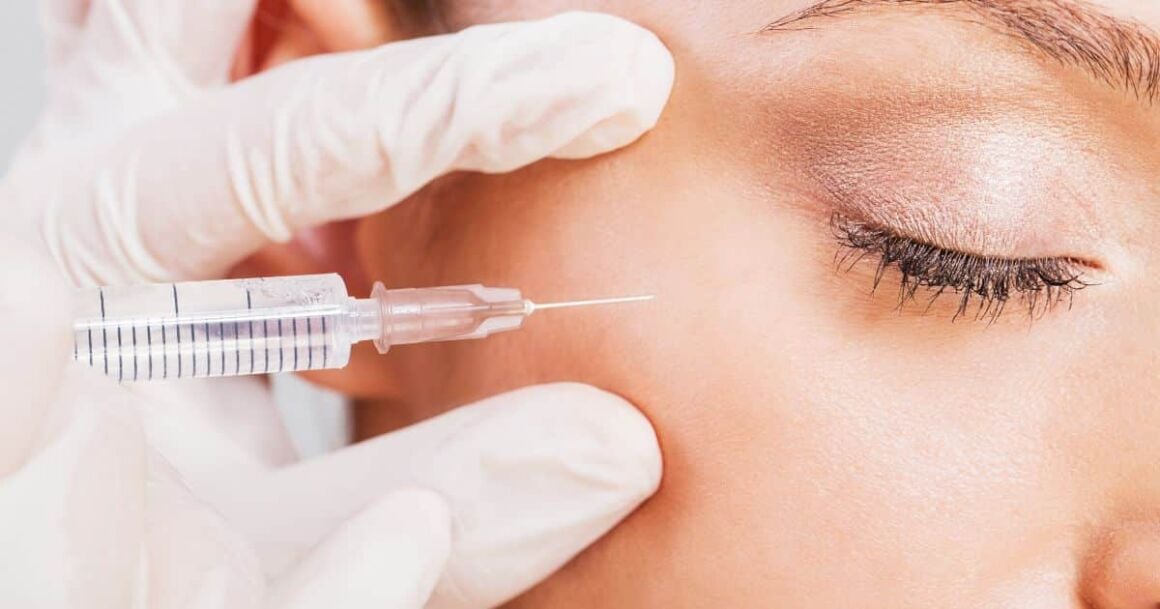
14. Try Anti-aging Treatments
Numerous anti-aging and pro-aging treatments available today can help you gracefully maintain a youthful appearance.
Some popular treatments that can help us age gracefully on the outside:
Botox injections: Botox is a popular injectable treatment that can help reduce the appearance of fine lines and wrinkles by temporarily paralyzing the underlying muscles.
Related Article: The Benefits of Botox
Dermal fillers
Fillers such as Juvederm, Restylane, and Sculptra can be used to restore lost volume, smooth out wrinkles, and plump up areas of the face that may have started to sag due to aging.
Related Article: The Best Dermal Fillers for Over 50
Chemical peels
These treatments use a chemical solution to remove the outer layers of the skin, revealing fresher, smoother, and more youthful-looking skin underneath.
Related Article: The Benefits of Chemical Peels
Microdermabrasion
This is a non-invasive procedure that uses a machine to exfoliate the top layer of the skin, promoting cell turnover and reducing the appearance of fine lines, age spots, and other signs of aging.
Microneedling
This treatment uses tiny needles to create micro-injuries in the skin, stimulating collagen production and promoting skin rejuvenation.
Laser treatments
Various types of laser treatments can help reduce the appearance of wrinkles, age spots, and other signs of aging by resurfacing the skin, stimulating collagen production, or targeting specific skin concerns.
Ultherapy
This non-invasive treatment uses ultrasound energy to lift and tighten the skin on the face, neck, and décolletage by stimulating collagen production.
Platelet-rich plasma (PRP) therapy
Also known as the “vampire facelift,” this treatment involves injecting your own platelet-rich plasma into your skin to stimulate collagen production, promote healing, and rejuvenate your appearance.
Radiofrequency (RF) treatments
These non-invasive treatments use radiofrequency energy to heat the deeper layers of the skin, promoting collagen production and resulting in tighter, smoother, and more youthful-looking skin.
Facials and skincare products
Regular facials and a consistent skincare routine using high-quality, age-appropriate products can help maintain your skin’s health and youthful appearance.
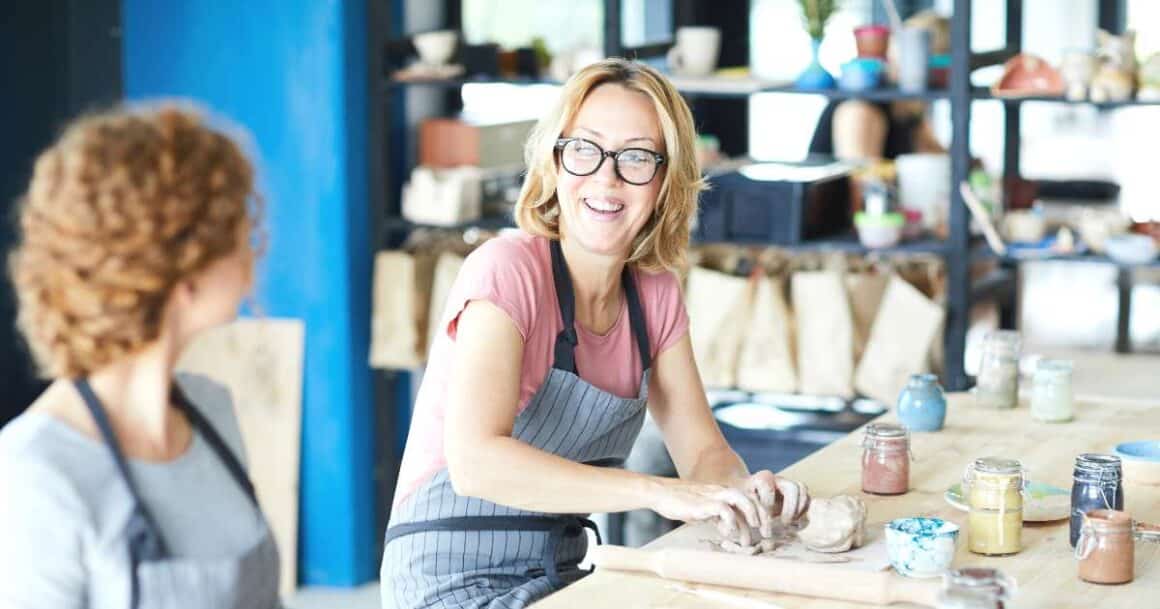
15. Have Fun and Laugh!
Have you ever noticed how people with a great sense of humor seem happier? It’s because having fun and laughing is good for your health.
Incorporating more fun and laughter into your life can be an enjoyable and easy way to age gracefully.
Here are some ways to add more laughter to your day:
Watch a comedy
Whether it’s a classic sitcom, a stand-up comedy special, or a funny movie, watching something humorous can be a great way to get a good laugh.
Spend time with funny friends
Spending time with people who make you laugh can be a great mood booster. Plan a game night, go to a comedy show, or hang out and tell funny stories.
Read something funny
A humorous book or comic can be a great way to add more laughter to your day. Look for a book or comic that makes you chuckle, and enjoy it in your free time.
Play with pets
Spending time with pets can be an excellent source of laughter. Whether it’s playing with a kitten or taking your dog for a walk, pets can be a great source of joy and laughter.
Practice laughter yoga
Laughter yoga is a form of exercise that involves intentionally laughing. This can help reduce stress and improve mood while providing a good workout.
Try new things
Trying something new can be a great way to inject laughter into your day. Whether taking a dance class or trying a new hobby, trying something new can be fun and exciting.
Spend time in nature
Spending time in nature can be a great way to relax and rejuvenate. Take a walk in the park, hike in the woods, or sit by a lake or river and enjoy the beauty of nature.
Related Articles for Women 40+:
- The Best Anti-aging Lip Treatments
- The Best Morning Skincare Routine for Mature Skin
- The Absolute Best Anti-aging Treatments
- The Ordinary Anti-aging Skincare
- Best Nighttime Skincare for Mature Skin
- 100 Things to Put in Your Purse
- The Best Clinique Foundations for Mature Skin
- Essentials Every Woman Needs
FAQs: Healthy Anti-Aging Tips for 40s and Beyond
Can supplements help with healthy aging?
Yes! Supplements can complement a healthy diet and lifestyle but should not replace nutritious food.
Always consult with a healthcare professional before starting any new supplement regimen to ensure it’s appropriate for your individual needs.
How does maintaining social connections contribute to healthy aging?
Maintaining social connections is vital for healthy aging. It helps combat feelings of loneliness and isolation, which can negatively impact mental and physical health.
Engaging in social activities, spending time with loved ones, and joining community groups or clubs can provide emotional support and a sense of belonging.
What role does hydration play in healthy aging?
Staying hydrated is essential for healthy aging as it supports various bodily functions, including digestion, circulation, and temperature regulation.
Drinking an adequate amount of water throughout the day helps maintain skin elasticity, joint health, and cognitive function, contributing to overall well-being as you age.
How does maintaining a positive attitude impact the aging process?
Maintaining a positive attitude can have a profound impact on the aging process by reducing stress levels, promoting resilience, and enhancing overall quality of life.
Cultivating gratitude, practicing optimism, and focusing on the present moment can help improve mental and emotional well-being, leading to a more fulfilling and enjoyable aging experience.
How can I prevent age-related health issues in my 40s and beyond?
Preventing age-related health issues involves adopting a proactive approach to your health.
Regular medical check-ups, screenings, and vaccinations can help detect and prevent potential health issues early.
Additionally, (as mentioned above) avoiding smoking, limiting alcohol consumption, and protecting your skin from sun exposure can reduce the risk of developing certain health conditions. 🙂
What role does skincare play in healthy aging?
Skincare is crucial for healthy aging as it helps maintain skin elasticity, hydration, and protection from environmental damage.
Using sunscreen daily, staying hydrated, and incorporating products containing antioxidants and moisturizers into your skincare routine can help minimize the appearance of wrinkles and age spots.
Related: My AM Skincare Routine for Mature Skin
How does mental health impact the aging process?
Mental health plays a significant role in the aging process, affecting cognitive function, emotional well-being, and overall quality of life.
Engaging in activities that stimulate the mind, such as reading, puzzles, or learning new skills, can help maintain cognitive function.
Additionally, practicing mindfulness techniques and seeking support from friends, family, or mental health professionals can improve emotional resilience and reduce the risk of depression or anxiety.
Is it too late to start healthy habits in my 40s and beyond?
Never!
It’s never too late to start adopting healthy habits, regardless of age. Incorporating small changes into your lifestyle, such as eating a balanced diet, staying active, and managing stress, can have significant benefits for your overall health and well-being, even in your 40s and beyond. 🙂
Conclusion: Aging Gracefully+ Healthy Aging Tips
In conclusion, aging gracefully is about taking care of your physical and mental health, and enjoying life to the fullest. While getting older can be a challenge, there is good news!
We can maintain a youthful appearance and stay healthy by adopting healthy lifestyle choices such as regular exercise, proper nutrition, good sleep habits, and stress management techniques.
Incorporating laughter, social connections, and self-care practices into your daily routine can also help you age gracefully.
Remember, it’s never too late to start caring for yourself and prioritizing your health.
By making small lifestyle changes and incorporating some of the healthy aging tips mentioned in this article, you can age gracefully and enjoy a long and vital life!
Related article: Nighttime skincare routine
XO, Christine

I’ve been keeping it real since 1963. 😊
I’m a child of God, devoted wife, proud mama and grandma, full-time creative, domestic engineer, and passionate self-care enthusiast.
I’m purpose-driven and do my best to live each day with intention—whether shopping for treasures, painting in my art studio, digging in the garden, or cooking up something yummy for my family.
I’m always up for a good chat and love collaborating with fellow creatives and brands.
Let’s connect—don’t be shy!
